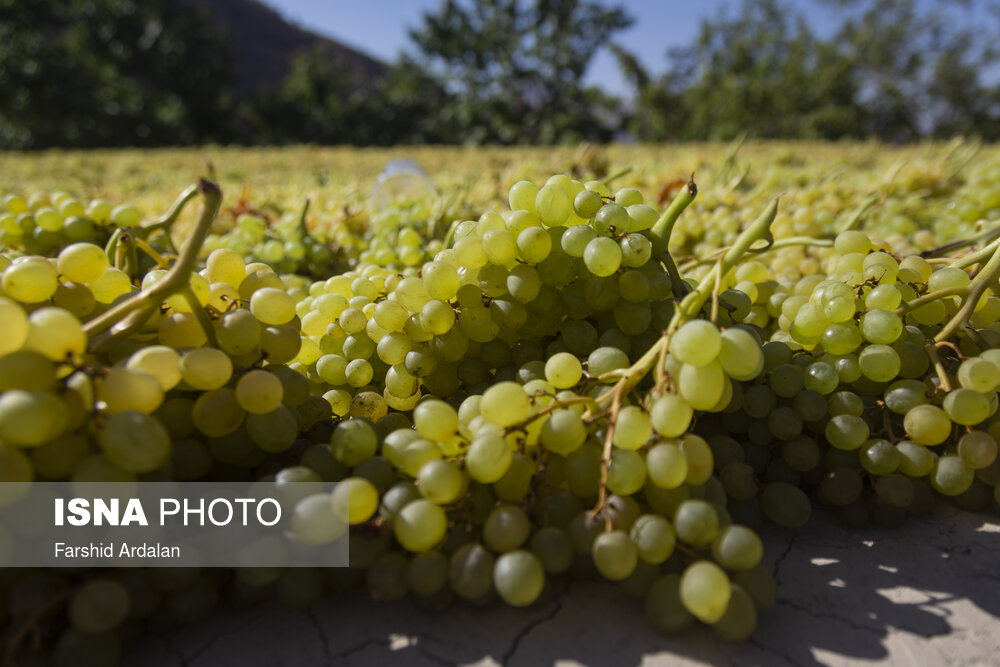These days, the roofs and yards of homes in the 1,000-year-old tourist village of Doolab (or as locals call it Doolaw or Boolaw) have turned gold as they are full of sultanas produced in old local vineyards.
These raisins are produced with a very special and traditional method and in cooperation with all villagers.
Fewer than 500 households live in the village, which has around 70 vineyards, producing nearly a hundred tonnes of grapes and hundreds of kilograms of sultanas, which are unique in the country.
What has made these golden raisins unique is the method used to produce them, a method registered on the list of the National Intangible Heritage in 2015.
The quality organic sultanas produced in Doolab are well known across Iran as a traditional method is used to produce them. Every year, all families are invited to take the grapes picked in the vineyards to the furnace. Then they boil the grapes in big pots during a special process. Afterwards, the grapes are taken to rooftops of houses and spread on the roofs to remain in the sun. The sultanas are ready for use after almost 10 days.
The ceremony to produce sultanas in this region is a much-revered event attended by a host of families and friends.
